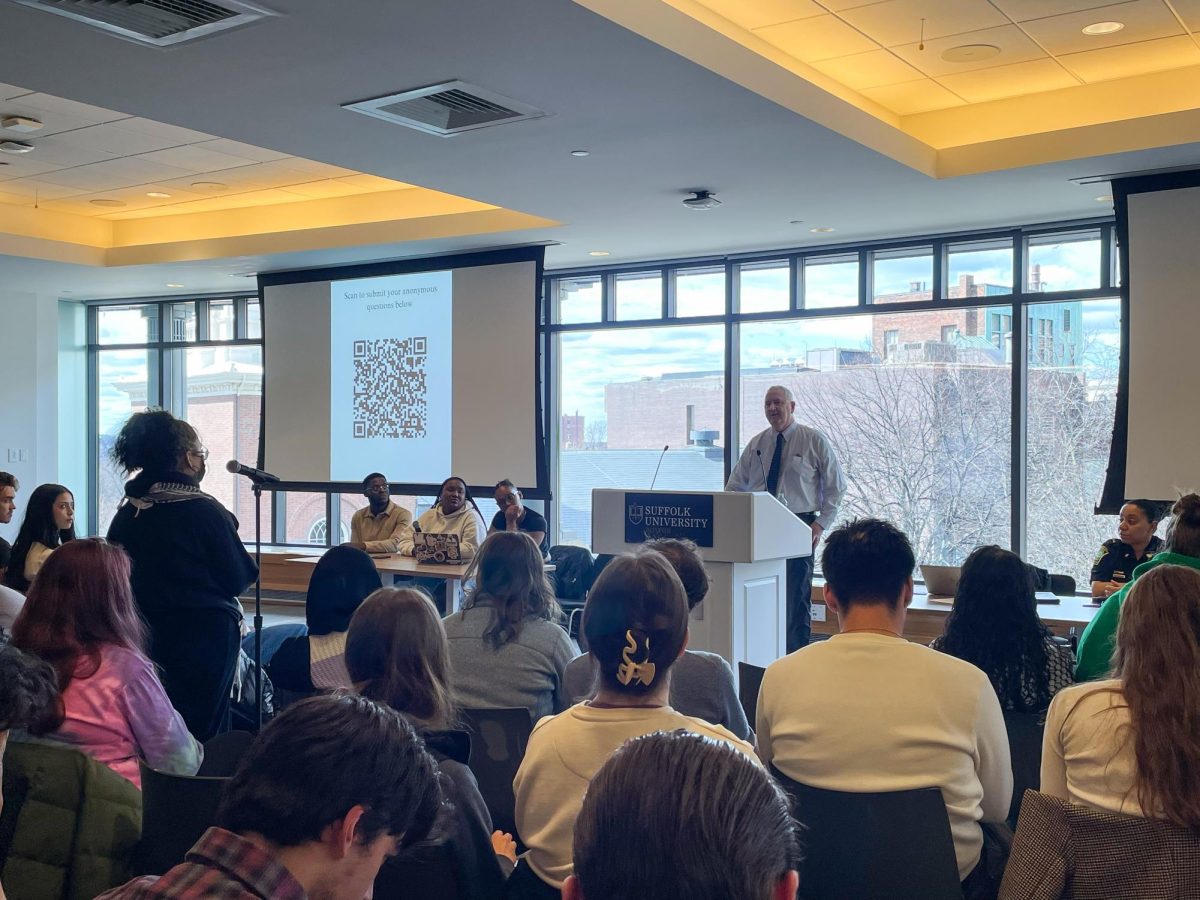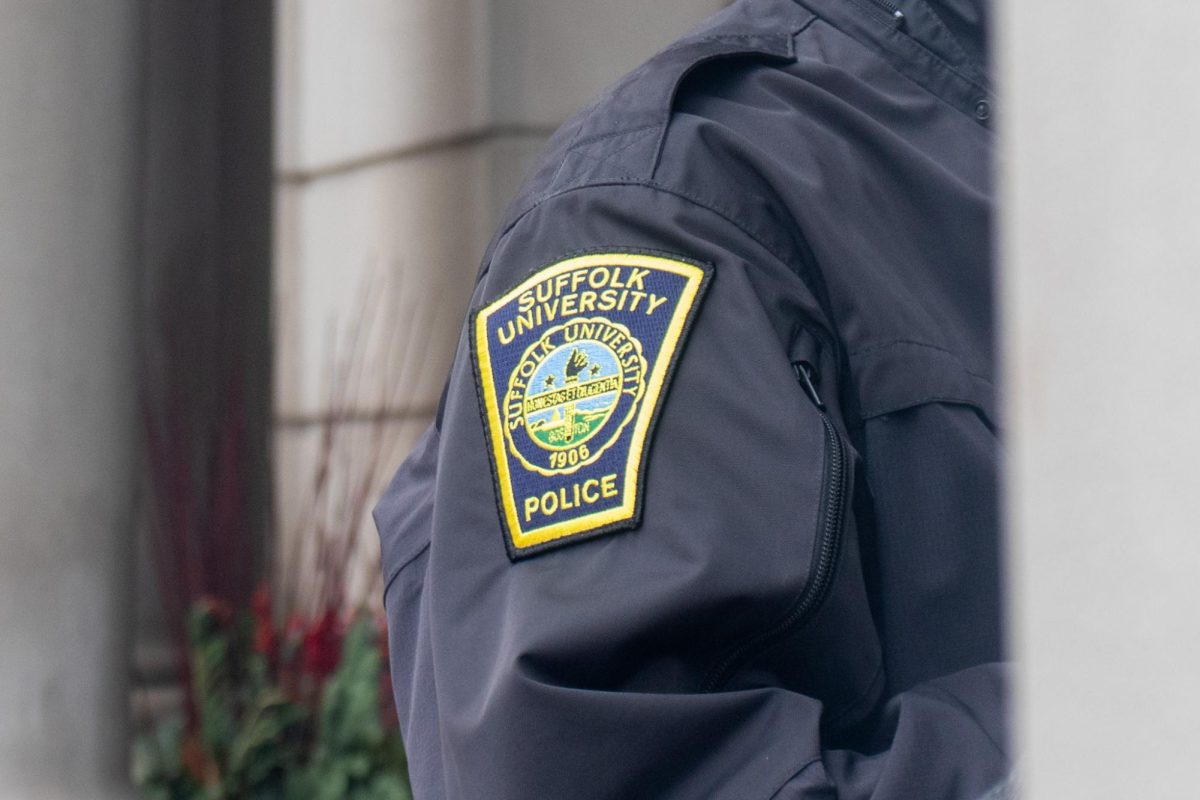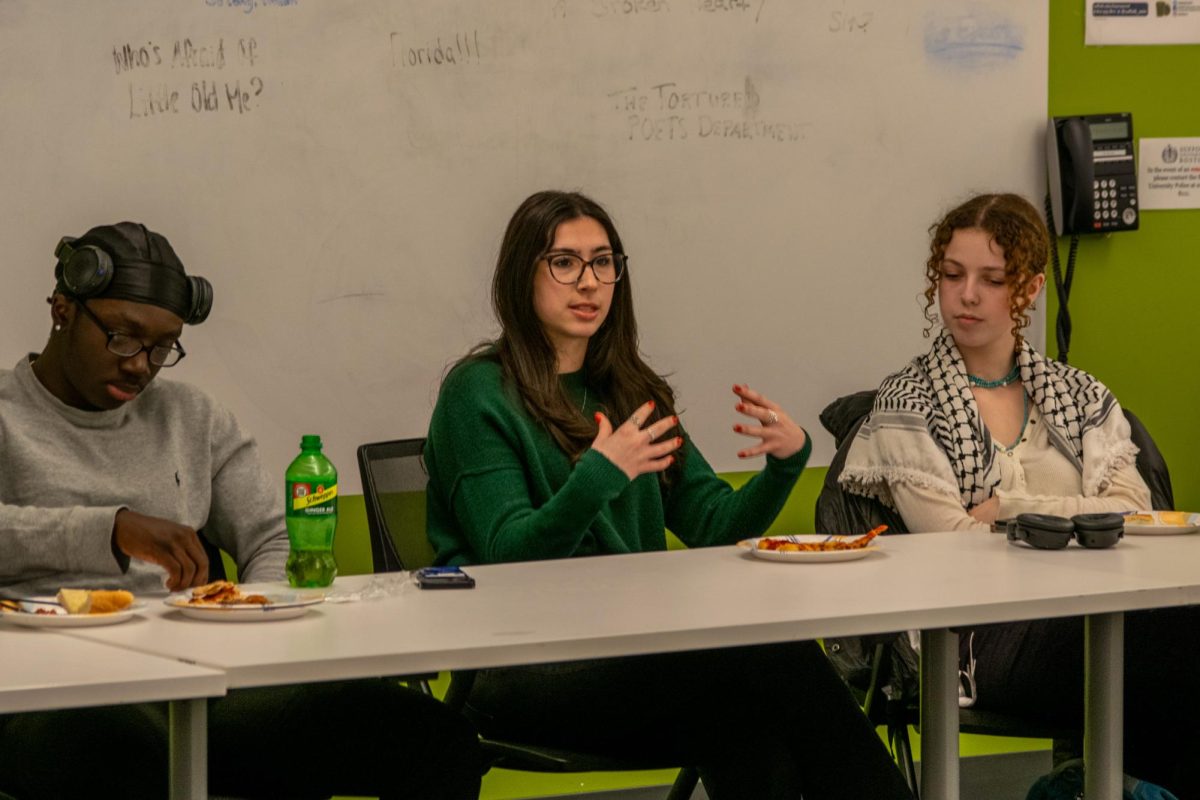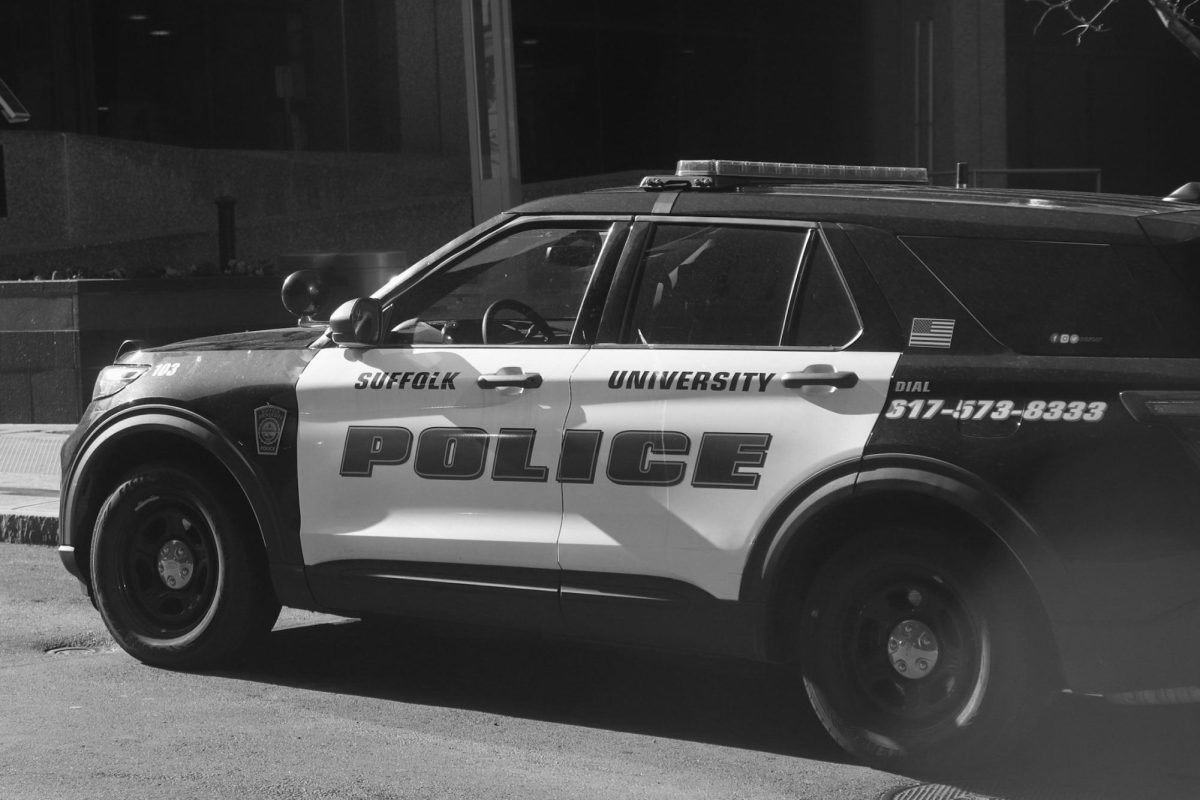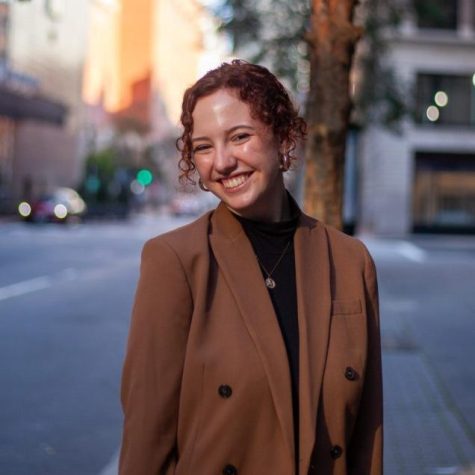As Suffolk University’s Board of Trustees prepares to vote in the coming months on whether Suffolk Police Department officers will be armed, Suffolk President Marisa Kelly and SUPD Chief James Connolly said gathering community feedback is a top priority.
Board members, university administration and SUPD leadership have been engaged in discussions with community members to answer questions and hear input about the issue, starting with presentations to the Faculty Senate and the undergraduate Student Government Association Feb. 15.
Connolly, alongside Lieutenant Corin Bourque, former SUPD Chief Gerard Coletta and Sergeant Mike McCarthy, heard questions and feedback from members of Suffolk’s undergraduate population at a forum March 19 hosted by Suffolk’s Black Student Union, African Student Association, Caribbean Student Network, Program Council and SGA. Suffolk students from the undergraduate, graduate and law schools are encouraged to attend a forum March 26 to provide more input, an imperative component of the decision for Kelly.
“The goal is to be sure that we are making the best decision that we can to help ensure the safety of our community and community input around this decision is really critical. I couldn’t tell you right now, wouldn’t even hazard a guess, as to which way this will go because we are getting so much great feedback from the community. But whichever way this decision goes, I’m confident that the Board, when they vote, will be voting on the basis of what is best for members of the Suffolk University community,” said Kelly.
Kelly said that decision makers for this issue, including herself and Chair of the Board Robert Lamb, are focused on hearing input and concerns of all students through outreach to diverse populations on campus during both individual meetings as well as the larger forums.
Students have expressed concerns on both possible outcomes of the vote, one being the impact on community members who are people of color. According to the Bureau of Justice Statistics, people of color are twice as likely to be threatened or met with use of force in interactions with police than white people.
“[Students of color] face not just that physical risk, but I think a history and a trauma, for lack of a better word, maybe not always as individuals, but because of their identity, that adds an additional layer of easily understandable concern,” said Kelly.
For sophomore Resident Assistant Danny Metri, this history is pivotal to the upcoming vote.
“If SUPD is armed, we’ll have a campus with guns on it, and that itself will be a big change,” said Metri. “…I would urge the university to seek to grow its relationship with students of color, and avoid taking actions that alienate or threaten the safety of students of color.”
Regardless of the vote’s outcome, Connolly, who officially became chief in 2023, said he sees the need for the force to build stronger relationships with the students. He added that SUPD wants to build trust and better understand what community members need from their officers.
Connolly said that the force is struggling with recruitment and retention, especially of experienced officers, in a job pool for police officers that is full of options where job-seekers can be selective. When Connolly first joined the force in 2013, there were 24 patrol officers, which does not include commanding staff. Now, there are 10.
“The challenge is no one wants to work in downtown Boston if you’re a police officer of 20 to 30 years someplace else, and not carry a firearm. So they just won’t come and they flat out told us that,” said Connolly.
SUPD has a total of 21 sworn police officers on the force, including including command staff and patrol officers, according to the university.
Both Kelly and Connolly emphasized that Suffolk has never had an issue with Boston Police’s response time and that SUPD has a strong relationship with BPD. Concerns lie in the unknowns of the worst-case scenario of an active shooter situation: how far the closest BPD officers are from the scene, other issues they are responding to in the city at the time and less familiarity with campus buildings in comparison with SUPD officers.
“We’re more familiar with campus than Boston [Police] … So we’re going to know the area, we’re going to have to tell them where to go, maybe give them a radio. Right now, if [a location on campus] is what they call a hot zone, we can’t go in there, because we don’t have firearms. So we’re likely outside the building doing traffic control … We would have to take a secondary role to the Boston Police Department,” said Connolly.
If the vote passes, Connolly said he wants his officers to be trained “above and beyond” the baseline required training that all SUPD officers already have, including shoot-don’t shoot scenarios, bias, mental health and de-escalation trainings, as well as recommending implementation components such as body cameras.
“I would recommend we get body cameras. The other beautiful thing about some of these cameras now is if I draw my firearm, automatically, the camera starts rolling. So it’s a safeguard tool,” said Connolly.
According to Kelly, the debate, which hit its peak in 2019, was put on hold due to the coronavirus pandemic, but it was always the intention of the Board to bring it back in order to reach a decision. The Board was originally supposed to vote in early 2020.
“Just saying [the decision] is on hold is not a good answer. In a context, in a world, sadly, where there’s violence, there’s these active shooter incidents that keep happening all over the country,” said Kelly.
Kelly said the specifics of implementation, such as timeline, cost management, training plans and other details have yet to be decided upon. If the Board decides to arm officers, community members will also be included in those discussions, as well as utilizing feedback being given at the current stage.
“What I can say with absolute certainty is that if the board decides to arm, police don’t just show up the next day with guns … It will take them an additional laying out a plan, engagement with the community about how we do this and when it happens. This is a long process and it’s a big decision one way or another,” said Kelly.
Following SGA’s Feb. 15 meeting, SGA President Clinton Oreofe said he hopes that students take advantage of the March 26 forum to ask questions and express their views to university administration and police.
“The response I want to see is everyone giving their opinion. Making it a topic is what will have the biggest impact,” said Oreofe.
The Board of Trustees will vote on the matter at either its April or June meeting, depending on when members feel they have gathered the information and community input needed to make an educated and confident decision on whether or not to arm, according to Kelly.


